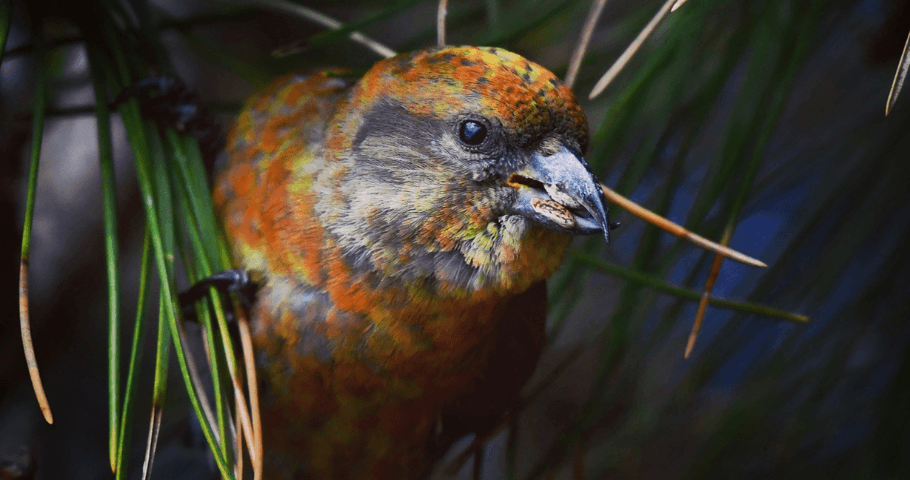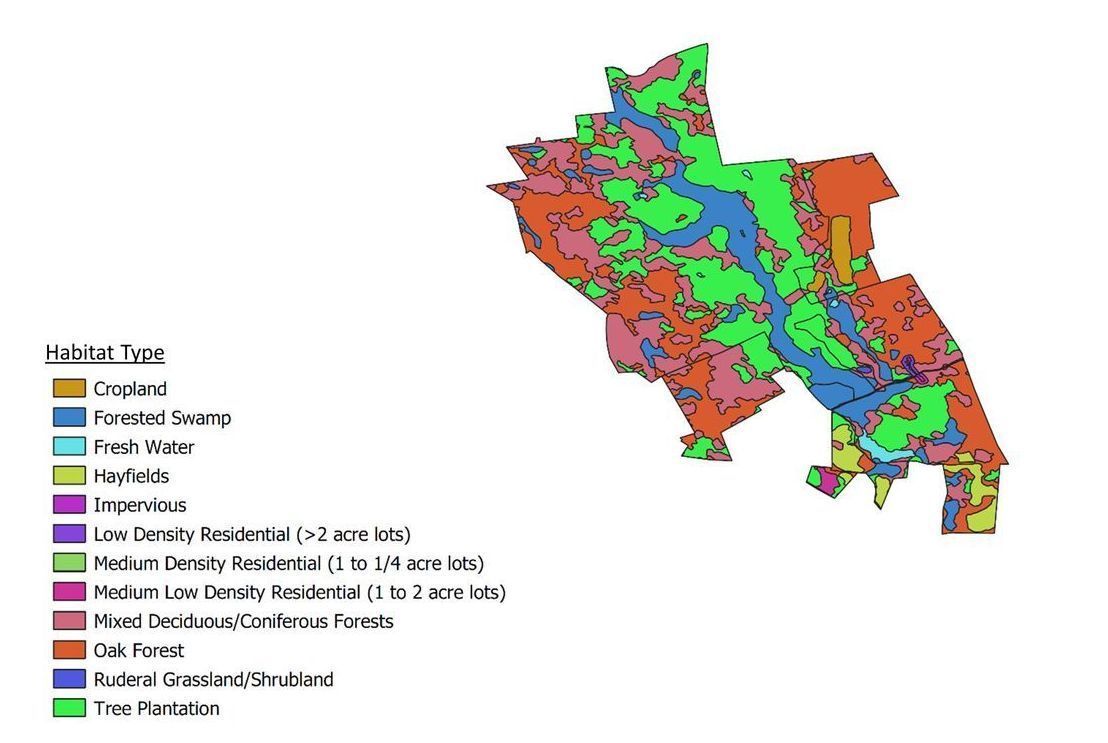Angela Munsell

Red Crossbill by Angela Munsell
Upcoming Bird Research at the Audubon Society of Rhode Island
By Dr. Charles Clarkson
The Audubon Society of Rhode Island has always worked diligently to protect birds and their habitat. But, managing close to 9,500 acres with birds in mind is no easy task. Most birds are specialists and their habitat requirements change throughout the year. Keeping track of those changes to ensure that we provide birds with the resources they require to thrive in the face of habitat loss, climate change and a suite of other factors that are contributing to their decline is essential if we want to mitigate loss and turn the tide in favor of our feathered friends.
Recently, the Audubon Society of Rhode Island hired a Director of Avian Research to address these issues. In addition to the science-driven work that this new role will institute across the refuge complex, a major goal of this position will be clear communication of our findings with the general public. This is key to our success as a conservation organization because true conservation does not occur without support from local communities. Invariably, you are the ones with the power to make change, through voting and your own stewardship of the world around you. This blog will be one of the primary mechanisms used to disseminate data that, ultimately, you will (hopefully) help gather. No one factor has caused the steep decline in our bird populations and no one person will be able to slow and ultimately reverse that decline. This is an "all hands on deck" moment for conservation. We need YOU.
Over the course of the next few months, we will be performing an exhaustive analysis of what we know so far about our properties. Once this baseline dataset has been created, gaps in our knowledge will be filled using citizen science based survey work across Audubon refuges. The ultimate goal will be the creation of a long-term monitoring program used by Audubon and other entities in the state and region to manage our land for birds year-round. We will be partnering with eBird to provide easy ways to submit data and trainings on data collection and submission will be held throughout the year.
This process has already started behind-the-scenes. The first step in understanding how best to manage our land for birds is to understand what we already protect. A thorough accounting of every habitat (habitat type, acreage and location) is underway. This information is crucial to our understanding of bird-habitat relationships across our properties, and because birds and habitats are inextricably linked, no management plan is complete without this step.
This will be the first of many blog posts that will serve as your connection to the science being conducted here at Audubon. I look forward to beginning a dialogue about our birds and what we are doing to save them. In the meantime, get your binoculars and boots ready...there is work to be done. I hope you are ready to heed the call because our birds need your help. Sign up for our Bird Research email newsletter to stay updated on our findings and upcoming community science projects that you can get involved with.

Habitats present at every Audubon parcel are currently being mapped so we can better understand what is available for birds to use during the breeding, wintering and migratory periods. Here you can see the habitats that comprise the Fisherville Brook Wildlife Refuge in Exeter.

















